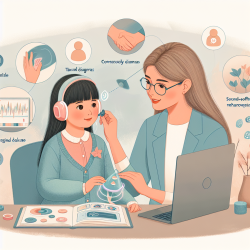Introduction
In the ever-evolving landscape of online therapy, understanding cultural and socio-political dynamics is crucial for practitioners. The research article titled "Religion and Nationalism Revisited: Insights from Southeastern and Central Eastern Europe" offers valuable insights into the intricate relationship between religion and nationalism in these regions. This blog post explores how these insights can be applied to enhance the skills of online therapists, especially those working with diverse student populations.
Understanding the Dynamics
The research paper delves into the rise of religious nationalism in Central Eastern and Southeastern Europe, highlighting its populist, nativist, and authoritarian overtones. It explores the historical and contemporary relationship between nationalism and religion, examining how these dynamics have evolved through different socio-political eras. For online therapists, understanding these dynamics is essential, particularly when working with students from these regions or those affected by similar socio-political contexts.
Applying Insights to Online Therapy
Online therapists can leverage the findings of this research in several ways:
- Cultural Sensitivity: Recognize the historical and cultural significance of religion and nationalism in shaping individual and community identities. This understanding can enhance empathy and connection with students from these backgrounds.
- Contextual Awareness: Be aware of the socio-political influences that may impact students' mental health and behavior. This awareness can guide therapists in tailoring their approaches to better meet the needs of their students.
- Building Trust: Acknowledge the role of religion as a potential source of comfort and identity for students. This can help in building trust and rapport, which are critical for effective therapy.
- Encouraging Open Dialogue: Facilitate discussions around identity, belonging, and cultural heritage. Encouraging students to express their experiences and perspectives can lead to more meaningful therapeutic outcomes.
Encouraging Further Research
While the research provides a comprehensive overview of the relationship between religion and nationalism, it also opens avenues for further exploration. Online therapists are encouraged to delve deeper into these topics to enhance their understanding and skills. Exploring how these dynamics play out in different cultural contexts can provide valuable insights for improving therapeutic practices.
Conclusion
Incorporating insights from the research on religious nationalism can significantly enhance the skills of online therapists. By fostering cultural sensitivity, contextual awareness, and open dialogue, therapists can better support their students in navigating complex socio-political landscapes. As the field of online therapy continues to grow, staying informed and adaptable is key to providing effective and compassionate care.
To read the original research paper, please follow this link: Religion and nationalism revisited: Insights from southeastern and central eastern Europe.










